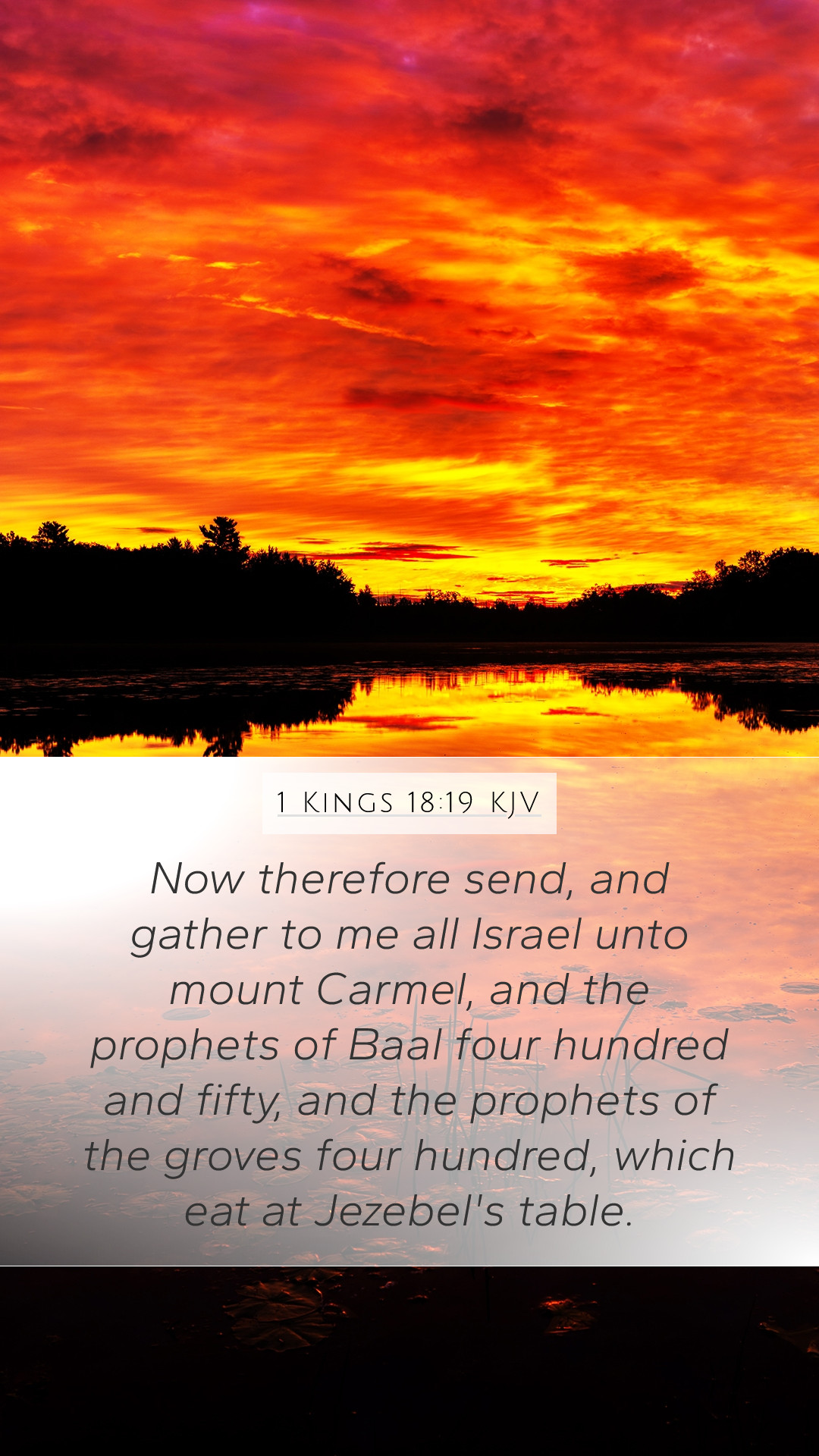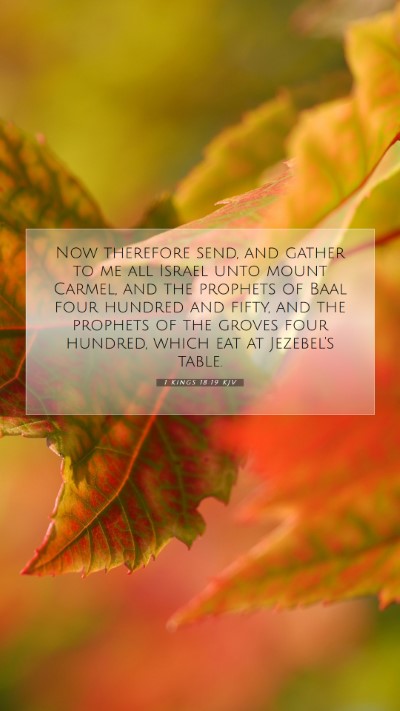Understanding 1 Kings 18:19
Bible Verse: "Now therefore send and gather to me all Israel unto mount Carmel, and the prophets of Baal four hundred and fifty, and the prophets of the groves four hundred, which eat at Jezebel's table." (1 Kings 18:19)
Summary and Commentary
This verse is located in a narrative that highlights the confrontation between the prophet Elijah and the prophets of Baal on Mount Carmel. Elijah calls upon all of Israel and the false prophets to witness a demonstration of God's power. This situation brings to light several key themes regarding faith, idolatry, and the challenge of serving God amidst corruption.
Insights from Public Domain Commentaries
Matthew Henry's Commentary
Matthew Henry emphasizes the significance of Elijah's call as a pivotal moment for Israel, illustrating the division between the worship of Yahweh and the idolatrous practices fostered by King Ahab and Queen Jezebel. Elijah's challenge to the prophets of Baal is not only a demonstration of God's authority but also an urgent appeal to the people of Israel to return to true worship.
Albert Barnes' Notes
Albert Barnes reflects on the importance of gathering all Israel. He notes that Elijah desires the participation of the people to reaffirm their faith and commitment to the Lord. The mention of Baal's prophets highlights the overwhelming influence of idolatry, which had been supported by the monarchy. Barnes emphasizes the need for public acknowledgment of God and the confrontation of false prophets as a means of restoring Israel's relationship with God.
Adam Clarke's Commentary
Adam Clarke analyzes the strategic decision of calling both the people and the prophets to Mount Carmel. He points out that Mount Carmel was a significant location, representing a threshold between falsehood and truth. Clarke notes that the presence of the prophets of Baal and the associated idolatry illustrates the dangers of complacency in spiritual matters and the dire need for leadership in the pursuit of righteousness.
Key Themes
- Faithfulness to God: The necessity for Israel to choose between Baal and the Lord highlights the importance of unwavering faith.
- Confrontation of Idolatry: Elijah's actions serve as a direct confrontation with the idolatrous practices present in society.
- The Role of Leadership: The leadership of prophetic figures like Elijah is critical in guiding the people back to God.
Cross References
- Exodus 20:3 - "Thou shalt have no other gods before me."
- 1 Kings 17:1 - Elijah's introduction and authority as a prophet.
- 1 Kings 18:20 - The gathering of the people at Mount Carmel for the confrontation.
- James 5:17 - "Elias was a man subject to like passions as we are..." highlighting Elijah's humanity and bold faith.
- Isaiah 46:1 - God’s challenge against idols.
Application of the Verse
1 Kings 18:19 serves as a profound reminder for believers today about the importance of discernment in worship. It invites reflection on the allegiances in our lives, encouraging a decisive commitment to God. In studying this passage, one can glean valuable lessons on standing firm in faith and courageously confronting the influences of modern-day 'Baal' that detract from divine worship.
Conclusion
As we explore bible verse meanings and bible verse interpretations, the narrative in 1 Kings 18:19 reveals much about the nature of our relationship with God and the contemporary relevance of Elijah's challenge. Engaging with such bible study insights enhances our understanding of Scripture and equips us for bible study groups or personal reflection.


